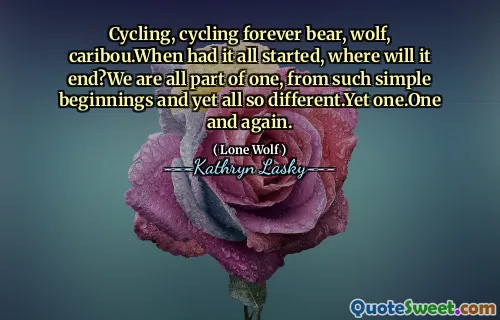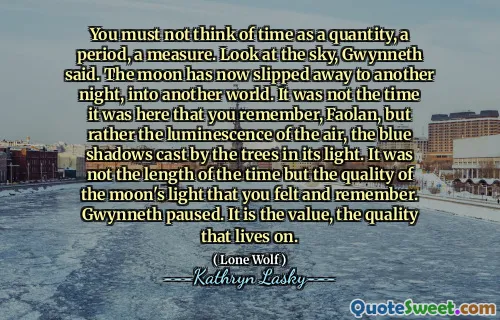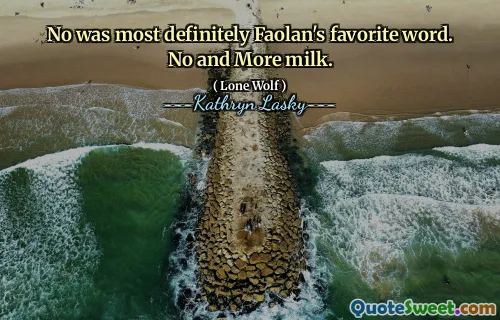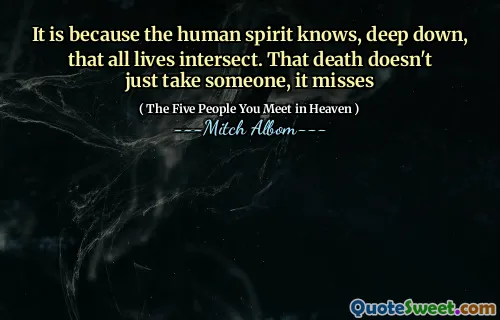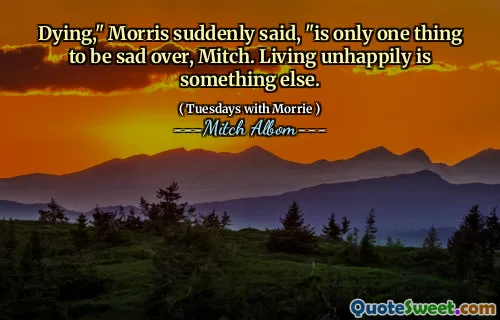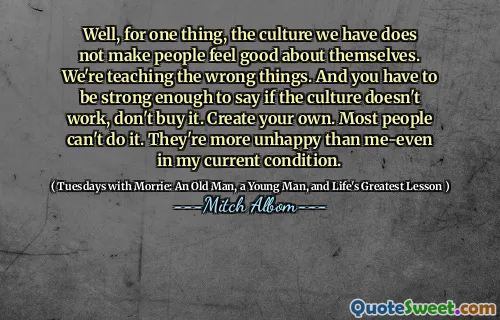
Non devi pensare al tempo come a una quantità, un periodo, una misura. Guarda il cielo, ha detto Gwynneth. La luna ora è scivolata via a un'altra notte, in un altro mondo. Non era il momento in cui era qui che ricordi, Faolan, ma piuttosto la luminescenza dell'aria, le ombre blu lanciate dagli alberi nella sua luce. Non era la lunghezza del tempo, ma la qualità della luce della luna che hai sentito e ricordati. Gwynneth si fermò. È il valore, la qualità che vive.
(You must not think of time as a quantity, a period, a measure. Look at the sky, Gwynneth said. The moon has now slipped away to another night, into another world. It was not the time it was here that you remember, Faolan, but rather the luminescence of the air, the blue shadows cast by the trees in its light. It was not the length of the time but the quality of the moon's light that you felt and remember. Gwynneth paused. It is the value, the quality that lives on.)
In "Lone Wolf" di Kathryn Lasky, Gwynneth condivide una profonda intuizione con Faolan sulla natura del tempo. Invece di vedere il tempo come un'entità misurabile, lo incoraggia ad apprezzarlo attraverso la bellezza che li circonda. Questa prospettiva sposta l'attenzione da quanto tempo è passato alle esperienze e alle qualità che rendono il tempo significativo. Le immagini della luna e la sua luce evocano la comprensione che i momenti sono definiti dalla loro risonanza emotiva piuttosto che dalla loro durata.
La riflessione di Gwynneth evidenzia l'importanza di catturare l'essenza delle esperienze, come il modo in cui la luce della luna crea ombre incantevoli. Questa qualità del tempo diventa una memoria persistente che arricchisce la propria vita. Serve da promemoria che i nostri momenti più amati non sono limitati alle ore o ai giorni in cui occupano, ma sono invece modellati dalle impressioni durature che lasciano alle spalle. L'enfasi è sulla valutazione della bellezza e del significato delle nostre esperienze nella misurazione semplicistica del tempo.
